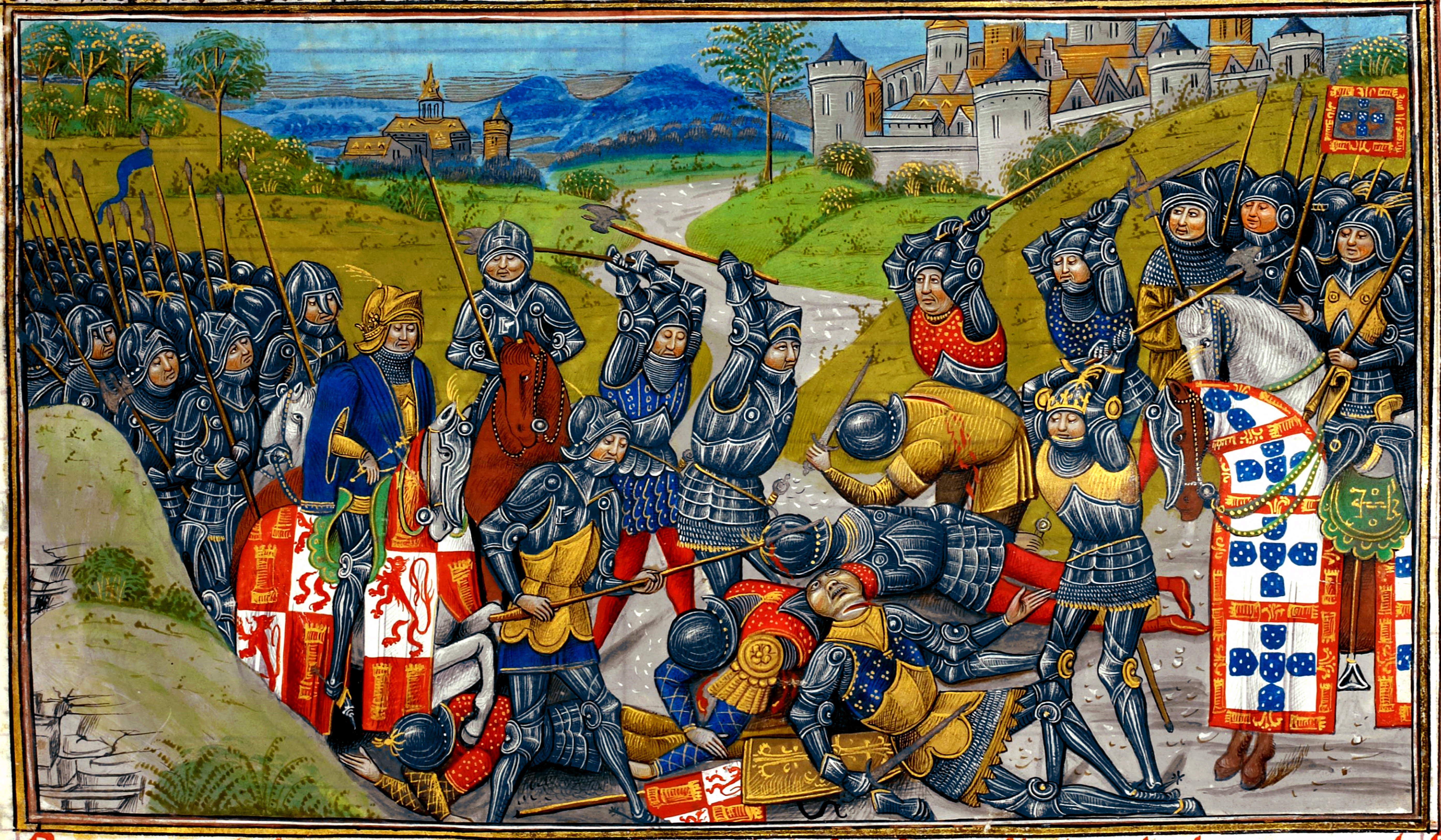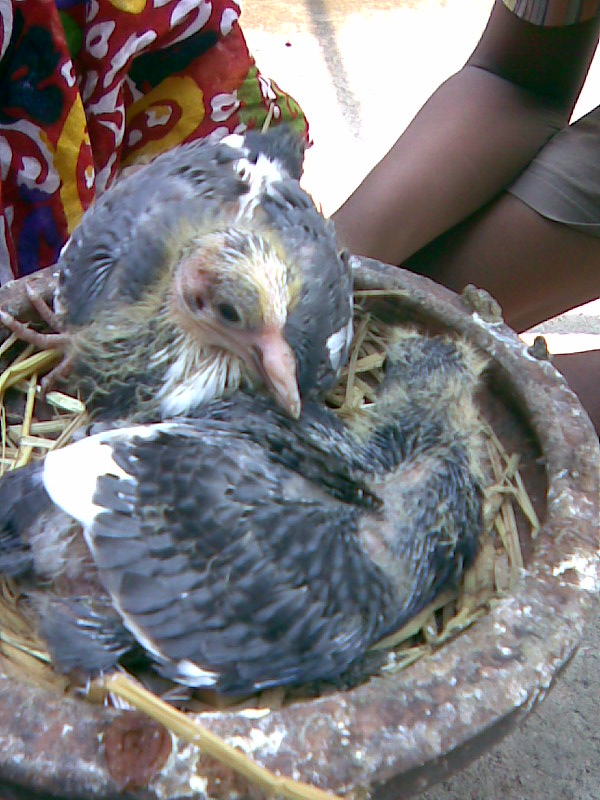|
Order Of The Dove
The Order of the Dove (, meaning Order of the Pigeon, as the Spanish word ''paloma is'' used to refer both doves and pigeons), was a short lived military order which lasted only for a year. It was created by King Juan I of Castile in 1379 to defend the Catholic faith and the Kingdom of Castile. History It had been doubted in the past which king of the Kingdom of Castile had created the order (another option being Henry III of Castile in 1399). The order was dissolved next year of its creation, but regardless of its short life, it became known due to its large feasts which mostly included eating pigeon Columbidae () is a bird family consisting of doves and pigeons. It is the only family in the order Columbiformes. These are stout-bodied birds with short necks and short slender bills that in some species feature fleshy ceres. They primarily ... (the order's namesake). In fact, those large feasts consisting on eating pigeon meat and the name of the order itself were actually ... [...More Info...] [...Related Items...] OR: [Wikipedia] [Google] [Baidu] |
Juan I Of Castile
John I ( es, Juan I; 24 August 1358 – 9 October 1390) was King of Castile and León from 1379 until 1390. He was the son of Henry II and of his wife Juana Manuel of Castile. Biography His first marriage, to Eleanor of Aragon on 18 June 1375, produced his only known issue : # Henry (4 October 1379 – 25 December 1406), succeeded his father as King of Castile.C.W. Previte-Orton, ''The Shorter Cambridge Medieval History'', Volume 2, (Cambridge at the University Press, 1912), 902. # Ferdinand (27 November 1380 – 2 April 1416), became King of Aragon in 1412. # Eleanor (b. 13 August 1382), died young. In 1379, John I formed the short lived military order of the Order of the Pigeon, known for its large feasts which included eating the organization's namesake, the pigeon. Unlike his father, John I seems to have been more tolerant towards Jews, even making legal exemptions for some, such as Abraham David Taroç. He ransomed Leo V of the House of Lusignan, the last Latin king of ... [...More Info...] [...Related Items...] OR: [Wikipedia] [Google] [Baidu] |
Kingdom Of Castile
The Kingdom of Castile (; es, Reino de Castilla, la, Regnum Castellae) was a large and powerful state on the Iberian Peninsula during the Middle Ages. Its name comes from the host of castles constructed in the region. It began in the 9th century as the County of Castile (''Condado de Castilla''), an eastern frontier lordship of the Kingdom of León. During the 10th century, its counts increased their autonomy, but it was not until 1065 that it was separated from León and became a kingdom in its own right. Between 1072 and 1157, it was again united with León, and after 1230, this union became permanent. Throughout this period, the Castilian kings made extensive conquests in southern Iberia at the expense of the Al-Andalus, Islamic principalities. The Kingdoms of Castile and of León, with their southern acquisitions, came to be known collectively as the Crown of Castile, a term that also came to encompass overseas expansion. History 9th to 11th centuries: the beginnings Accor ... [...More Info...] [...Related Items...] OR: [Wikipedia] [Google] [Baidu] |
Henry III Of Castile
Henry III of Castile (4 October 1379 – 25 December 1406), called the Suffering due to his ill health (, ), was the son of John I and Eleanor of Aragon. He succeeded his father as King of Castile in 1390. Birth and education Henry was born in Burgos, the capital of Castile. He was the first-born child of the recently crowned king John I of Castile and his wife Eleanor of Aragon. His younger brother Ferdinand grew up to become king of Aragon. His upbringing was entrusted to Inés Lasso de la Vega, the wife of John Niño. As a child he was educated by Diego de Anaya Maldonado, Bishop of Tui-Vigo, who later became Archbishop of Seville. His tutor was Juan Hurtado de Mendoza el Limpio and his confessor was the Dominican Alonso de Cusanza, who later became Bishop of Salamanca and León. Marriage Shortly after his birth, he was promised to be married to Beatrice of Portugal, the heir to the Portuguese throne. This was part of a peace treaty between Castile and Portugal, who ... [...More Info...] [...Related Items...] OR: [Wikipedia] [Google] [Baidu] |
Squab (food)
In culinary terminology, squab is an immature domestic pigeon, typically under four weeks old, or its meat. The meat is widely described as tastes like chicken, tasting like dark chicken. The term is probably of Scandinavian origin; the Swedish word ''skvabb'' means "loose, fat flesh". It formerly applied to all Columbidae, dove and pigeon species, such as the Common wood pigeon, wood pigeon, the mourning dove, the extinct-in-the-wild socorro dove, and the now extinct passenger pigeon, and their meat. More recently, squab meat comes almost entirely from domesticated pigeons. The meat of dove and pigeon Galliformes, gamebirds hunted primarily for sport is rarely called squab. The practice of domesticating pigeons as livestock may have come from North Africa; historically, squabs or pigeons have been consumed in many civilizations, including ancient Egypt (still common in modern Egypt), Ancient Rome, Rome, China, India (Northeast), and Middle Ages, medieval Europe. Although squab ha ... [...More Info...] [...Related Items...] OR: [Wikipedia] [Google] [Baidu] |
Promiscuity
Promiscuity is the practice of engaging in sexual activity frequently with different Sexual partner, partners or being indiscriminate in the choice of sexual partners. The term can carry a moral judgment. A common example of behavior viewed as promiscuous by many cultures is the one-night stand, and its frequency is used by researchers as a marker for promiscuity. What sexual behavior is considered promiscuous varies between cultures, as does the prevalence of promiscuity. Different standards are often applied to different genders and civil statutes. Feminism, Feminists have traditionally argued a significant double standard exists between how men and women are judged for promiscuity. Historically, stereotypes of the promiscuous woman have tended to be pejorative, such as "the slut" or "the harlot", while male stereotypes have been more varied, some expressing approval, such as "the stud" or "the player", while others imply societal deviance, such as "the womanizer" or "the philand ... [...More Info...] [...Related Items...] OR: [Wikipedia] [Google] [Baidu] |
Military Orders (monastic Society)
Military order may refer to: Orders * Military order (religious society), confraternity of knights originally established as religious societies during the medieval Crusades for protection of Christianity and the Catholic Church Military organisation and terms * Military order (instruction), including an individual command by an armed forces officer to a person under his command ** General order, a published directive originated by a commander of a military organization ** Operations order, an executable plan that directs a unit on how to conduct a military operation ** Close order drill, a form of military parade for ceremonial purposes * Martial law, order and security maintained by the military when government or civilian authorities fail to function effectively * Military justice or military law, a body of laws and procedures governing members of the armed forces See also * Order (honour) An order is a visible honour awarded by a sovereign state, monarch, Dynasty, dyna ... [...More Info...] [...Related Items...] OR: [Wikipedia] [Google] [Baidu] |
1379 Establishments In Europe
Year 1379 ( MCCCLXXIX) was a common year starting on Saturday (link will display the full calendar) of the Julian calendar. Events January–December * May 29 – John I succeeds his father, Henry II, as King of Castile and King of León. * June 30 – New College, Oxford, is founded in England by William of Wykeham, Bishop of Winchester. * July 1 – Forces of the Republic of Venice and Ottoman Turks, having invaded Constantinople, restore John V Palaiologos as Byzantine co-emperor. Andronikos IV Palaiologos is allowed to remain as co-emperor, but is confined to the city of Silivri for the remainder of his life. * September 9 – The Treaty of Neuberg is signed, splitting the Austrian Habsburg lands between brothers Albert III and Leopold III. Albert III retains the title of Duke of Austria. Date unknown * Bairam Khawaja establishes the independent principality of the Kara Koyunlu (Turkomans of the Black Sheep Empire), in modern-day Armeni ... [...More Info...] [...Related Items...] OR: [Wikipedia] [Google] [Baidu] |
14th-century Establishments In Castile
As a means of recording the passage of time, the 14th century was a century lasting from 1 January 1301 ( MCCCI), to 31 December 1400 ( MCD). It is estimated that the century witnessed the death of more than 45 million lives from political and natural disasters in both Europe and the Mongol Empire. West Africa experienced economic growth and prosperity. In Europe, the Black Death claimed 25 million lives wiping out one third of the European population while the Kingdom of England and the Kingdom of France fought in the protracted Hundred Years' War after the death of Charles IV, King of France led to a claim to the French throne by Edward III, King of England. This period is considered the height of chivalry and marks the beginning of strong separate identities for both England and France as well as the foundation of the Italian Renaissance and Ottoman Empire. In Asia, Tamerlane (Timur), established the Timurid Empire, history's third largest empire to have been ever establish ... [...More Info...] [...Related Items...] OR: [Wikipedia] [Google] [Baidu] |



